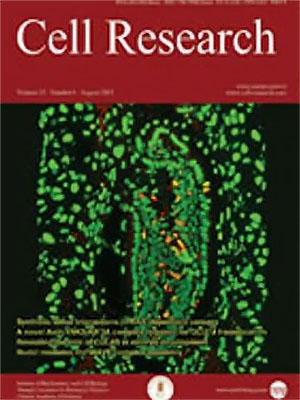Volume 5 Issue 1, June 1995: 101-114
ORIGINAL ARTICLES
P48-Triggered transmembrane signaling transduction of human monocytes: mobilization of calcium ion and activation of protein kinase C (PKC)
CHANG AL, RE HALL.
Shanghai Institute of Cell Biology, Chinese Academy of Sciences, Shanghai 200031, China.
Dept. of Medicine, Director of Div. Of Hematology/Oncology, Univ. of Tennessee Medical Center, Knoxville, TN 37920.
Correspondence:
P48 is a cytokine which induces monocyte differentiation and the induction of cytotoxic activity. In this study, the signal transduction events involved in the stimulation of monocytes with the membrane form of P48(mP48) were investigated. Monocyte stimulation with mP48 was found to involve the mobilization of intracellular calcium (Ca2+) and the activation and translocation of PKC from the cytosol to the membrane. Membane P48 induced a rapid rise of intracellular Ca2+ in a dose dependent maner. Similarly, the stimulation of monocytes with P48 was found to involve the activation and translocation of PKC. The translocation of PKC was rapid (within 0-5 min yet transient with PKC activity returning to control levels by 8 min. The functional role of protein kineses in P48 induced TNF secretion was studied using various kinese inhibitors. The PKC inhibitors, H-7 and sphingosine, were found to inhibit P48 induced TNF secretion with 50% inhibition at 5 uM. HA1004, which inhibts cyclic nucleotide-dependent kinase (PKA inhibitor) was found to be an effective inhibitor of TNF secretion only at high concentrations(30 uM). The Calmodulin-dependent kinase inhibitor, W7 (Ki 1.2 uM) was found to be effective at concentration above 5 uM. These findings suggest that P48- triggered TNF secretion involves transmembrane Ca2+ signaling and the subsequent activation of at least two protein kineses, PKC and CaMK.
FULL TEXT | PDF
Browse 2307


